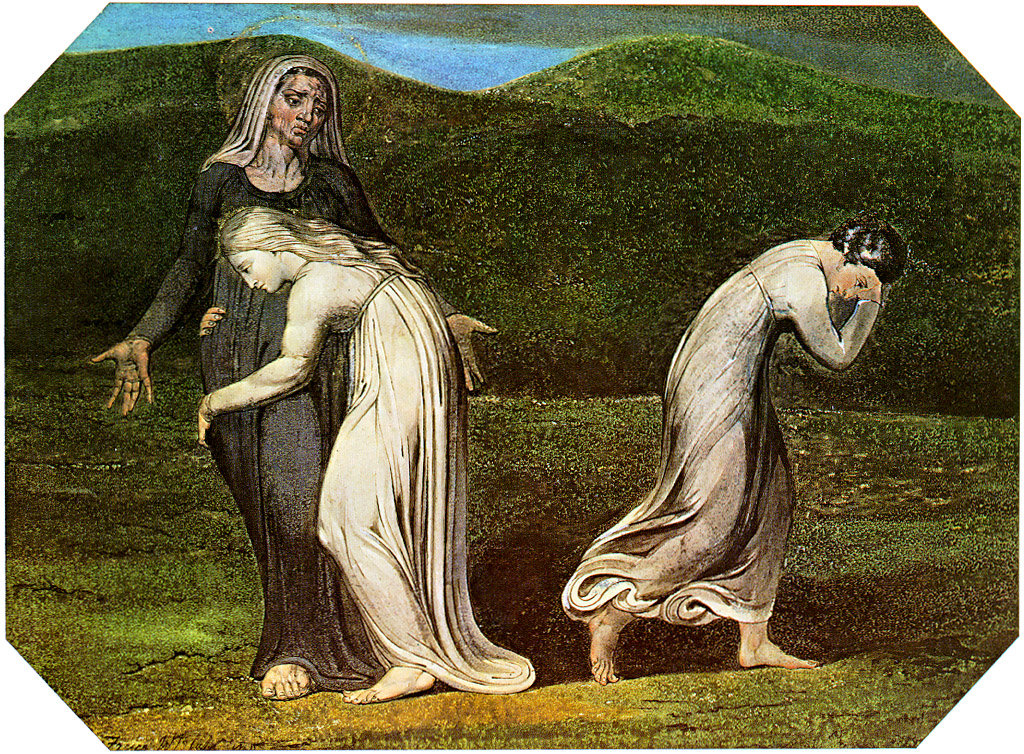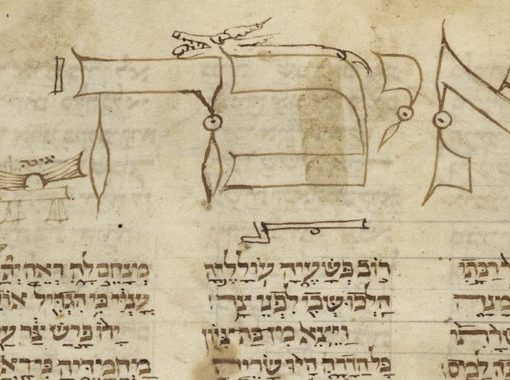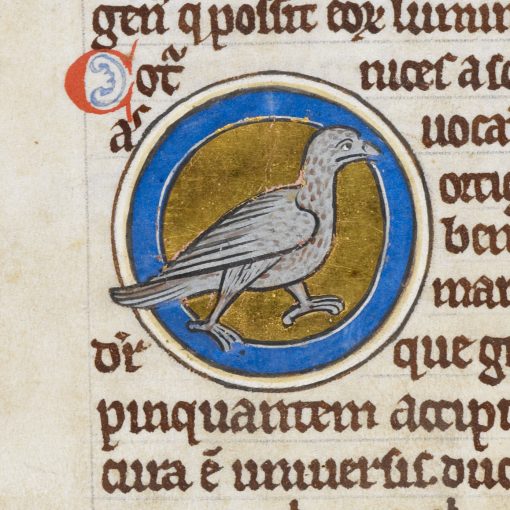This is an entry in the “Acrostic Contemplations.”
Orpah is the legal, first name of the TV personality better known as Oprah. Yes, it’s true, Orpah Gayle Winfrey was named after the biblical character Orpah. Like many female figures in the Bible, very little is known about Orpah which results in a lot of traditions, particularly rude ones, growing up around her. For example, rabbinic tradition says that Goliath was a child of Orpah, born after a debaucherous night of activity following her departure from Naomi (Ruth Rabbah 2:20, Ruth Zuta 1). There is a less salacious tradition that asserts that Orpah and Ruth were sisters, daughters of Eglon, the Moabite king (Ruth Rabbah 2:9). The biblical text itself reveals very little about Orpah.
When the Book of Ruth opens, we are told that Elimelech, his wife Naomi, and their two sons, Mahlon and Chilion, leave the famine torn Bethlehem for neighboring and more fruitful Moab, ancient enemy of Israel though it was. Shortly after arriving, Elimelech dies and the boys marry a couple of local ladies, Orpah and Ruth. We only know who married whom because at the very end of the story (Ruth 4:9-10), Boaz tells us Ruth was married to Mahlon. Then the two boys die and mother Naomi is bereft, has had enough of this accursed self-imposed exile, and heads out to return to Bethlehem in Israel.

Then she started to return with her daughters-in-law from the country of Moab, for she had heard in the country of Moab that the LORD had considered his people and given them food. … But Naomi said to her two daughters-in-law, “Go back each of you to your mother’s house. May the LORD deal kindly with you, as you have dealt with the dead and with me. The LORD grant that you may find security, each of you in the house of your husband.” Then she kissed them, and they wept aloud. They said to her, “No, we will return with you to your people.” Then they wept aloud again. Orpah kissed her mother-in-law, but Ruth clung to her. So she said, “See, your sister-in-law has gone back to her people and to her gods; return after your sister-in-law.” (Ruth 1:6, 8-10, 14–15)
This is why the rabbinic sources deal so harshly with Orpah, she went back “to her people and to her gods.” Unlike Ruth, who not only remained faithfully with Naomi, she became a follower of the LORD. But why did Orpah go back? Why did Ruth not turn back? Of course the Bible doesn’t tell us, but could it be that Ruth had nothing left to go back to? Perhaps her family had rejected her because she married a dirty Israelite, held a ceremony declaring her dead to them, and so Ruth had no one who would take her in. The prospect of living in the enemy territory of Israel as a widow and an exile may have been the lesser of two tragic choices for Ruth.
Orpah might well have had a loving and caring family waiting to receive her joyfully, the prodigal daughter returned! She has been moved by loyalty and charity to begin this journey with Naomi, presumably ready to see it through, all the way to Bethlehem. Naomi was being generous and honest as well; she could offer nothing to Ruth and Orpah but her blessing. “May the LORD deal kindly with you, as you have dealt with the dead and with me. The LORD grant that you may find security, each of you in the house of your husband.” Such a blessing is no small thing! Naomi is calling upon the LORD God to not only protect them, but provide them with another husband and a home in Moab. It is Orpah who is the obedient one, following Naomi’s orders and accepting the blessing of the LORD that was placed upon her by Naomi.
We remember Ruth because she has a book named after her, because she cared for and supported Naomi, because her great grandson was David, and because she became the model of a proselyte. Orpah’s fate is lost to memory and grotesquely embellished in legend, yet she departed blessed by the LORD. Can we judge or blame Orpah for accepting such a blessing? Indeed, if God heard Naomi’s prayer, Orpah found kindness, safety, and a home upon her return. May we all be so blessed.





